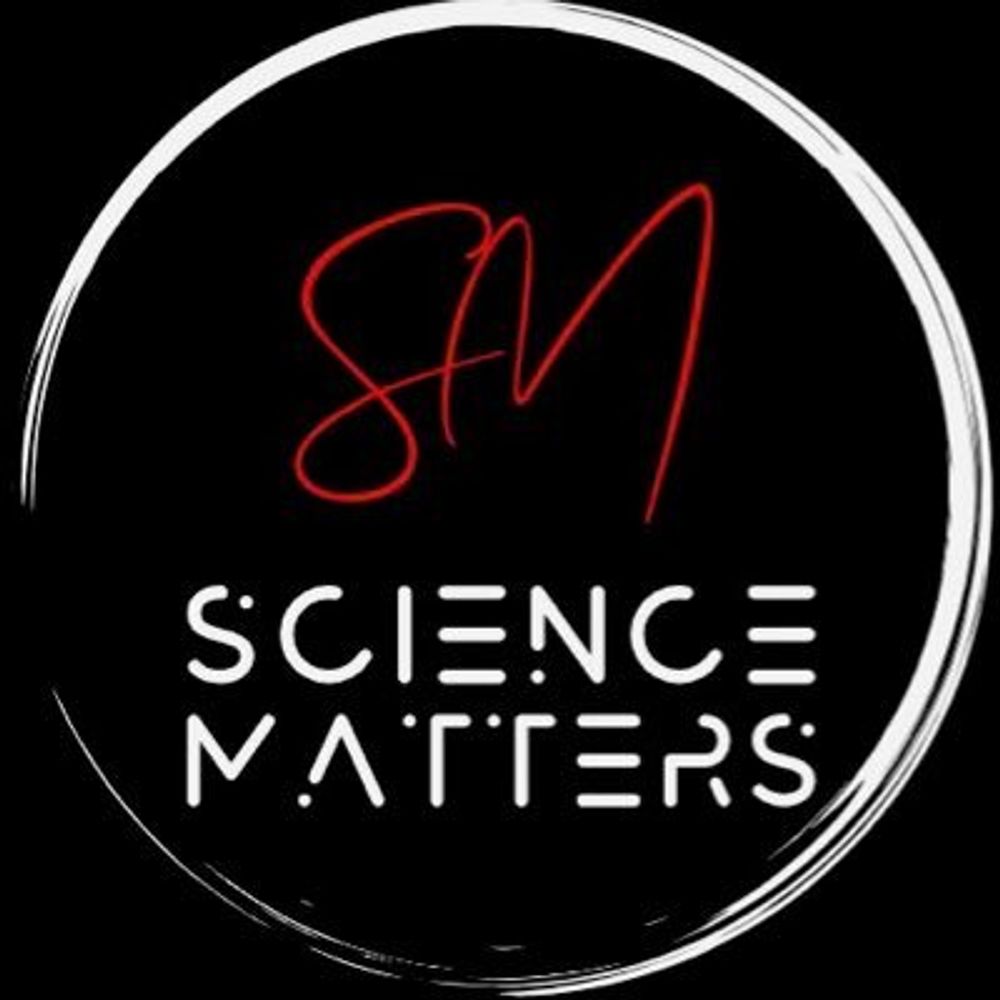In the world of environmental science, stories of perseverance often shine as brightly as the discoveries themselves. One such story belongs to Professor Methika Vithanage, a Sri Lankan scientist whose journey has been anything but ordinary. From humble beginnings in Colombo to becoming one of the world’s most highly cited researchers, she has walked a path marked by determination, loss, and an unyielding devotion to knowledge.
Today, she stands as the Director of the Ecosphere Resilience Research Centre and Dean at the Faculty of Applied Sciences, University of Sri Jayewardenepura. Recognised among the world’s top two per cent of most cited scientists, her contributions to groundwater studies, remediation, and biochar research extend far beyond her country’s borders. Yet behind these accolades is a deeply human story, one that speaks of resilience in the face of hardship, courage during civil conflict, and the constant balancing act between family and ambition.
Her journey is not just the tale of a researcher rising through global ranks, but a testament to the power of self belief and truth. For young scholars navigating their own uncertain futures, Professor Vithanage’s life reminds us that science is not only about experiments and citations, it is also about courage, compassion, and conviction.
Early roots in Sri Lanka
Professor Methika Vithanage’s story begins in 1976, as the only child of a devoted family in Colombo. Her father, a graduate working in the public sector, and her mother, a homemaker, placed education at the heart of her upbringing. It was a modest household, yet one filled with encouragement and quiet discipline.
From the start, she showed the determination that would later define her career. At just ten years old, she passed Sri Lanka’s demanding grade five scholarship examination, a milestone that opened doors to the country’s best schools. She earned a place at Devi Balika Vidyalaya, widely regarded as one of the top institutions for girls. It was here that the seeds of resilience and ambition were sown.
Growing up as an only child, she learnt early the value of independence. Her father’s academic pursuits, even later in life, served as a powerful role model, while her mother’s steady guidance created the foundation that allowed her to dream of possibilities beyond the ordinary. These early experiences did not just prepare her for exams, they instilled the mindset that education was a pathway to transformation, even in a country marked by economic and social challenges.
First milestones and determination
For many students in Sri Lanka, the advanced level examinations are a formidable test that can determine the course of one’s future. Professor Vithanage’s first attempt at the biology stream ended in disappointment, but giving up was never an option. She returned a year later, this time with renewed determination, and succeeded in gaining entry into the national university system, a privilege secured by only about two per cent of candidates at the time.
Her parents’ modest means ruled out the possibility of a private education. Yet this limitation became a turning point. Instead of following the well worn paths of medicine or engineering, she made a bold choice: to study natural resources at Sabaragamuwa University of Sri Lanka, a newly established institution far from home. It was a decision that surprised many, as she left behind the security of established universities to join only the second batch of students at this rural campus.
The move demanded courage. Eight hours away from her family, she immersed herself in field visits, lectures, and the curiosity driven exploration of earth sciences. The subjects ignited questions about tectonic movements, mineral formations, and environmental change. What began as a gamble soon became a foundation. By choosing the unconventional, she laid the groundwork for a career defined by both risk taking and resilience.
Turning point towards a PhD
By the time she completed her bachelor’s and master’s degrees, Methika Vithanage had already proven her academic strength. Yet the leap into doctoral research came almost unexpectedly. In 2005, an open call appeared for a PhD scholarship based in Denmark, focusing on the aftermath of the devastating Indian Ocean tsunami. The project sought to understand how saltwater intrusion had contaminated groundwater and how long aquifers would take to recover.
More than forty candidates from seventeen countries applied. For Methika, who had never even faced an international interview before, it was meant to be practice, a chance to test herself. But her strong master’s research and determination caught the attention of the selection panel. Against all odds, she secured the scholarship, beginning a journey that would take her across Sri Lanka, Denmark, and the United States.
The research was demanding, not just scientifically but logistically. Field sites were located in Sri Lanka’s eastern coastal regions, areas deeply scarred by both the tsunami and the ongoing civil war. Travelling across military checkpoints to set up wells and collect samples, she braved dangers that most researchers could scarcely imagine. Yet her persistence allowed her to capture the data needed to model groundwater contamination with advanced tools such as the HST3D transport model.
For an only child, the decision to leave home and her widowed mother was heartbreaking. But the PhD also brought unexpected blessings, much of the fieldwork kept her anchored in Sri Lanka, ensuring that despite international commitments, she could still spend precious time with her family. The scholarship marked not only her entry into global science but also her initiation into resilience at the highest level.
Resilience through hardship
Behind Methika Vithanage’s scholarly achievements lay personal trials that tested her resolve. During her master’s studies, her father’s brain tumour returned with devastating speed. Despite surgery abroad, he passed away in 2003, leaving her mother and daughter alone. As the only child, she faced the competing pull of family duty and academic ambition. Her mother hoped she would secure a stable government job with a pension, ensuring financial security in uncertain times.
Yet Methika felt another calling. Her late father had always believed in education as the surest path forward. Carrying that conviction, she pursued her PhD, even though it meant leaving her mother behind during one of life’s most fragile moments.
The sacrifices were immense. Alone in a foreign land, she wrestled with the guilt of absence, but also with the heavy demands of research. In Sri Lanka’s eastern provinces, her fieldwork coincided with the final years of the civil war. Navigating through conflict zones to reach remote wells, she risked her safety for the sake of science.
It was a chapter of loss, courage, and determination. Instead of breaking her spirit, these hardships hardened it. The lessons she learnt during those years, that success often comes hand in hand with sacrifice, would shape not only her career but also the way she later guided her students.
International exposure and research evolution
The PhD opened doors that stretched far beyond Sri Lanka. While much of her fieldwork remained rooted on the island, Professor Vithanage travelled to Denmark to strengthen her modelling skills and later to the Colorado School of Mines in the United States, where she calibrated her field data in laboratory scale experiments. These international stints gave her access to resources, mentorship, and scientific networks that were impossible to find at home.
Her doctoral work centred on groundwater modelling, but the limitations of working in a developing country soon became clear. Building networks of monitoring wells, conducting long term measurements, and accessing cutting edge instruments required funding and infrastructure that Sri Lanka could not yet provide. She realised that to continue contributing meaningfully, she needed to shift her focus.
That shift brought her into the world of remediation science. By exploring ways to remove pollutants from water and soil, she could connect international techniques with pressing local needs. This transition was not just a change of topic but a deliberate strategy to pursue research that balanced global relevance with national impact.
Through these experiences, she also discovered the power of collaboration. Partnerships with institutions abroad, especially in Korea, allowed her to overcome resource gaps at home. In time, these ties would lead to patents, pioneering research on biochar, and a reputation as one of South Asia’s leading voices in environmental remediation.
Building a scientific career in Sri Lanka
Returning home after her PhD, Methika Vithanage chose not to remain abroad, despite the lure of better salaries and laboratories. She joined the National Institute of Fundamental Studies, Sri Lanka’s premier research institute, where she began shaping her scientific identity. The choice was deliberate, she wanted to build knowledge where it mattered most, on her own soil.
The challenges, however, were stark. Sri Lanka lacked many of the advanced instruments needed for environmental research. Tools such as scanning electron microscopes and gas chromatography systems were either scarce or absent. For a young researcher with ambitious projects and eager students, this could have been a dead end.
Instead, she looked outward. Recalling an earlier postdoctoral invitation from Korea, she reached out to Professor Yong Sik Ok at Kangwon National University. What began as a request for analytical support quickly grew into a strong collaboration. For several years, she spent short stints in Korea with her students, conducting experiments and pushing forward research that would later lead to patents on biochar for antibiotic remediation.
These partnerships transformed limitations into opportunities. With every project, she proved that scientific progress was not confined to wealthy nations. Innovation, persistence, and collaboration could overcome material shortages. By linking local issues with global expertise, she positioned herself, and Sri Lanka, on the international research map.
From researcher to leader
By 2017, after years of balancing fieldwork, collaborations, and publishing, Methika Vithanage faced another turning point. She left the National Institute of Fundamental Studies and joined the University of Sri Jayewardenepura. The move was driven partly by personal reasons, being closer to home after her mother’s passing, and partly by a desire to build something larger than her individual research.
At first, the transition was daunting. There were no proper laboratories or offices, only a few temporary rooms. But setbacks became opportunities. She poured her energy into writing grant proposals, often working late into the night. Within a year, her efforts paid off, multiple funding agencies, from the International Atomic Energy Agency to Sri Lanka’s National Science Foundation, supported her vision.
With this momentum, she founded the Ecosphere Resilience Research Centre. What began in a handful of borrowed rooms grew into a state of the art container laboratory complex, made possible by the support of the university’s leadership and her tireless grant securing. In just three years, she attracted nearly 100 million rupees, about 300,000 US dollars, in funding, a remarkable feat in a country that invests only 0.1 per cent of its GDP in research.
Her rise to Director of the centre and Dean of the Faculty of Applied Sciences was not merely a change in title. It was the culmination of years of resilience, strategic thinking, and the belief that Sri Lanka could house world class science. From mentoring students to spearheading large scale projects, she had moved from researcher to leader, shaping both science and policy in her country.
Philosophy of teaching and mentoring
For Professor Vithanage, the role of an academic is not confined to delivering lectures. She sees herself less as a traditional teacher and more as a coach and advisor. “Teaching is about transferring knowledge,” she often explains, “but coaching is about preparing students for life.” In her view, a true mentor equips young scholars not only with technical skills but also with confidence, teamwork, and the ability to think critically.
From the very first day in her lab, students are encouraged to write. She assigns them research papers to summarise in their own words, training them to become scientific writers. This discipline reflects her own career, built on the belief that research only reaches its full value when communicated clearly and convincingly. Many of her students, once hesitant writers, have gone on to publish in respected journals.
But writing is only one part of her philosophy. She insists on scientific communication beyond academia, urging her students to explain their work to the public. During national crises such as the MV X Press Pearl ship disaster, when Sri Lankans were uncertain whether it was safe to eat seafood, she stressed the responsibility of scientists to share clear, accessible knowledge.
Her approach is unconventional, even controversial at times. She rarely supervises PhD students in Sri Lanka, believing that aspiring researchers must first seek international exposure. To her, stepping outside one’s comfort zone is essential for growth. This conviction, though debated, reflects her broader philosophy, true education is about curiosity, openness, and preparing minds to thrive anywhere in the world.
Speaking the truth and facing challenges
If there is one quality that defines Professor Vithanage as much as her research, it is her refusal to compromise on the truth. From her school days, she developed a reputation for speaking her mind, a habit that has brought both admiration and adversity.
In Sri Lanka, where politics often shapes academic priorities, she has openly criticised the meagre 0.1 per cent of GDP allocated to research. She points out that without proper investment, even the brightest scientists are forced to fight uphill battles. Her insistence on evidence based decision making sometimes puts her at odds with administrators and policymakers, yet she refuses to soften her stance.
Being a woman scientist in a male dominated environment has added another layer of challenge. She has faced biases and obstacles, but instead of retreating, she chose to confront them with dignity. “If we stand for the truth,” she explains, “we may invite trouble, but we also find satisfaction.” For her, truth and trouble are inseparable companions, and she embraces both as part of her duty as an academic.
This fearless honesty is not without cost. Conflicts arise, doors occasionally close, and allies can be scarce. Yet she believes that academia, the judiciary, and journalism must remain fearless if a society is to thrive. By standing firm, she sets an example for her students, not just of scientific rigour, but of integrity as a way of life.
Balancing family and career
Behind the professional milestones lies a story of careful balance. Methika Vithanage married during her PhD years, to a childhood friend who became her strongest ally. While she pursued research abroad, he remained in Sri Lanka, caring for her mother and supporting her work from a distance. Their partnership was not built on traditional roles but on mutual respect and shared responsibility.
Motherhood added another dimension to this balance. Alongside managing students, grants, and laboratories, she embraced the daily routines of cooking, childcare, and family commitments. Rising at 4.30 in the morning, she prepares for the day before most others are awake. Early hours are reserved for responding to emails, planning tasks, and quietly focusing on what matters most. By evening, her attention shifts back to family, ensuring that both spheres of her life receive equal care.
She admits that it is not always easy. Pressure builds, deadlines loom, and sacrifices are inevitable. Yet she believes that balance comes from respect, respecting her husband’s commitments, valuing her students’ growth, and recognising her own need for rest. For her, family is not separate from her career, rather, it is a source of strength that makes her achievements possible.
Strengths, values, and life lessons
Asked about her greatest strengths, Professor Vithanage points first to hard work and persistence. She describes herself as someone who never gives up, no matter how many setbacks stand in the way. This determination, coupled with the discipline of constant reading and self improvement, has carried her from rural classrooms to global recognition.
Equally central to her identity is her commitment to truth and integrity. She is unapologetic about calling out inefficiencies, whether in research funding, institutional management, or social issues. For her, satisfaction comes not from avoiding conflict but from standing by what she believes is right.
Another defining trait is her ability to reinvent herself. When circumstances made groundwater modelling impractical in Sri Lanka, she shifted to remediation science. When resources were scarce, she sought collaborators abroad. She sees challenges not as barriers but as invitations to innovate.
Importantly, she has also learned what not to hold on to. Gossip, criticism, or petty conflicts do not disturb her focus. Nor does she dwell on anger the way she once did in her younger years. Experience has taught her to let go of what cannot be changed and to fight back only when it truly matters.
Her philosophy is simple but powerful, seek satisfaction, nurture curiosity, and never compromise on values. These principles have become her compass, guiding her through both the triumphs and the trials of an academic life.
Beyond the lab, the human side
For all her academic achievements, Methika Vithanage is more than a scientist. She is a lover of travel, food, and stories that reach beyond research papers. Her favourite cuisine blends Sri Lankan tradition with a fondness for South Indian flavours and Chinese dishes, though fish remains her first choice. She delights in the simplicity of a king coconut on a hot day, a reminder that small joys often bring the greatest comfort.
Books have also shaped her life. One in particular, The Breadwinner by Deborah Ellis, left such a mark on her that she translated it into Sinhala soon after finishing her bachelor’s degree. The novel, set in Taliban era Afghanistan, tells the story of a young girl navigating hardship, perhaps resonating with Methika’s own appreciation of resilience. Her translation sold more than two thousand copies, evidence of her ability to connect literature with her community.
Cinema, too, has left an imprint. She speaks fondly of Devdas, the classic film remembered for its tragic romance, and admires the grace of actress Madhuri Dixit. Yet her personal passion lies not on the screen but on the court. An accomplished basketball player in her youth, she once dreamed of becoming a professional coach. Though her father encouraged academia instead, she still sees herself as a coach, only now she trains minds rather than athletes.
These glimpses into her personal world remind us that even the most decorated scientists are human beings first, carrying passions, dreams, and hobbies that anchor them beyond the demands of research.
Advice for the next generation and conclusion
When asked what advice she would give young researchers, Professor Methika Vithanage’s response is as practical as it is inspiring, manage your time wisely. She insists that every hour in the lab, every effort spent writing, and every opportunity to collaborate should be treated as an investment in the future. For her, success comes not from shortcuts but from consistent effort, teamwork, and critical thinking.
She encourages students to look beyond their own borders. International exposure, she argues, is not just about access to better equipment but about widening perspectives. “Step outside your comfort zone,” she tells them, “and you will discover both science and yourself.” At the same time, she urges them to remain grounded, never forgetting that the ultimate aim of research is to serve society and to make knowledge accessible.
Her philosophy is simple, never give up, even when rejection or failure looms large. Rejections from journals, missed opportunities, or slow progress are not defeats, they are part of the journey. What matters most is persistence, coupled with the integrity to always stand by the truth.
Looking back on her journey, Professor Vithanage measures success not in awards or titles but in satisfaction, the satisfaction of mentoring students, advancing science, and standing by her values. For her, happiness is not tied to wealth or status but to the quiet knowledge that she has done her best for her family, her students, and her country. Her story is one of resilience, of choosing the harder road when it promised greater purpose, of finding strength in adversity, and of daring to tell the truth even when it was inconvenient. To the next generation of scholars, her life offers a simple yet profound lesson, science is not only about experiments and citations, but also about courage, compassion, and conviction.





